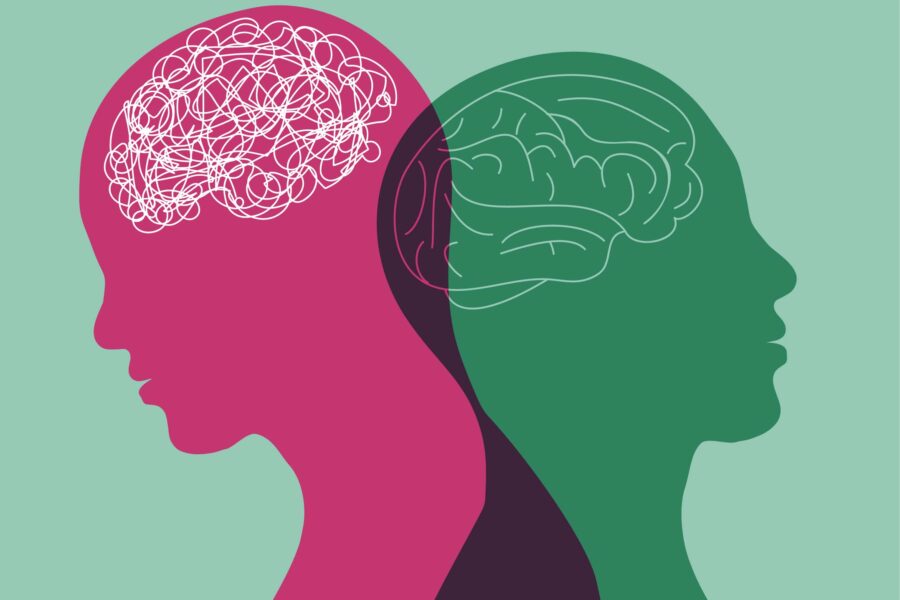Your first session with a new therapist. They call you into the office. You take a seat on the couch and mentally prepare to process life’s challenges—all the while thinking, in the back of your mind, This person looks familiar. Only in LA, right?
Well, no. Not if your therapist is Chad Allen Lazzari ’18 (Antioch New England, PsyD), who some may recognize from his acting roles on Dr. Quinn Medicine Woman, Star Trek: the Next Generation, and more. Today, Lazzari lives in rural Vermont with his fiancé, two cats, and a puppy named Luna. And he works as a primary clinician in a private, residential treatment facility for young adults. He left his successful Hollywood career to focus on helping people navigate their mental health issues.
And he’s not the only person to leave showbiz for a career in psychology, counseling, and therapy. In fact, he’s in good company among Antioch alumni. Many people from the entertainment world have come through Antioch’s psychology programs, including Desperate Housewives star Marcia Cross ’03 (Antioch Los Angeles, MA in Clinical Psychology) and 3rd Rock from the Sun’s Ian Lithgow ’05 (Antioch Los Angeles, MA in Clinical Psychology). This fall, I caught up with five of these Antiochians who made the transition from the entertainment industry to work in mental health treatment. I wanted to track the common threads between their stories
Finding Friendship and a Shared Call to Service
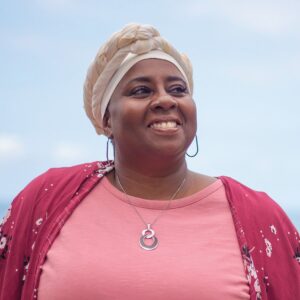
For Denise Williams ’13 (Antioch Los Angeles, MA in Clinical Psychology), the pivot to therapy involved stepping away from a long, successful career as an events coordinator that had involved producing events in Las Vegas and Indiana and even at some of the biggest venues in Los Angeles, like the Coliseum and the Forum. As part of her studies at Antioch, she traveled to the South of France to attend a Buddhist retreat exploring the intersection of Eastern and Western medicine. Among the other students on the retreat was Melody Murray ’14 (Antioch Los Angeles, MA in Clinical Psychology), who happened to also be transitioning away from her own successful career in entertainment—she had served as a producer and director for reality TV show like The Real World and Bad Girls Club, as well as game shows, awards shows, and much more. The two women connected over the commonalities in their first careers. Both of them had pivotal experiences in which they felt called into the service of helping others with their mental health and emotional lives.
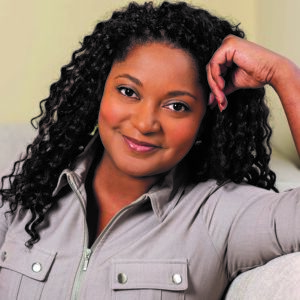
For Murray it was a call from her nephew, who had just returned to Naval Base San Diego from a deployment to Afghanistan. On the phone, he told her that he was experiencing an acute panic attack. Murray had no formal training as a therapist at the time, but she managed to de-escalate her nephew—though at the time she didn’t know that this was the term for what she was doing (she learned that term at Antioch). She talked to him until he was able to become present in his body and in the moment. And she realized that this was what she needed to be doing with her life.
Williams’s realization that she needed to change careers came over a more extended period of time. About a decade ago, she was running her own thriving business while raising two foster children who had traumatic histories and needed regular therapy. Williams had previously navigated challenges around finding a therapist of color for herself, and she found that once again she was fighting and advocating and struggling to find decent mental healthcare for her daughters. It became clear to Williams that there was a deep need for there to be more Black therapists. At the same time, she realized that she was actually well-suited to therapeutic work.
Eventually, Williams decided that this truly was the work she was meant to do next. She found the program at Antioch Los Angeles and enrolled there in part because its model of education is designed for adults who already have jobs and families. She was able to continue working while pursuing her degree.
It was a hectic time in her life. One evening “I got a call to go to Prince’s house,” she tells me. “I had booked his 21-Concert Residency at the Forum—due to begin the following day.” She dropped everything and drove to his house.“He needed to go over everything,” she says. “I stayed there until four or maybe five in the morning, went home, took a nap, then went to class!”
While for both Murray and Williams the work in show business was exciting and allowed them to work with famous and talented artists, they have found that their new careers in mental health are ultimately more sustainable and rewarding. Through their studies at Antioch they also found each other. Murray and Williams are now dear friends, and since their fortuitous meeting in the South of France they have traveled to Africa together and have plans for even more adventures.
Leaving an Unsustainable Industry to Heal Others
Another pair of friends who both made the leap into psychology actually met not at Antioch but in the writers’ room for the long-running TV series That ’70s Show. Both Alan Dybner ’11 (Antioch Los Angeles, MA in Clinical Psychology) and Phil Stark ’21 (Antioch Los Angeles, MA in Clinical Psychology) became friends while working on that show, which eventually ran to over 200 episodes. Recently Dybner joked with Stark that everyone in Hollywood leaves to become either a therapist or a real estate agent. It’s a joke born of truth—both have now left the industry and are working as successful therapists.
Dybner and Stark experienced first-hand the stresses of high-pressure careers in entertainment, and the ups and downs of doing creative work in an industry where what’s hot is always changing. To Dybner, it at first seemed impossible that another industry could be less stressful.
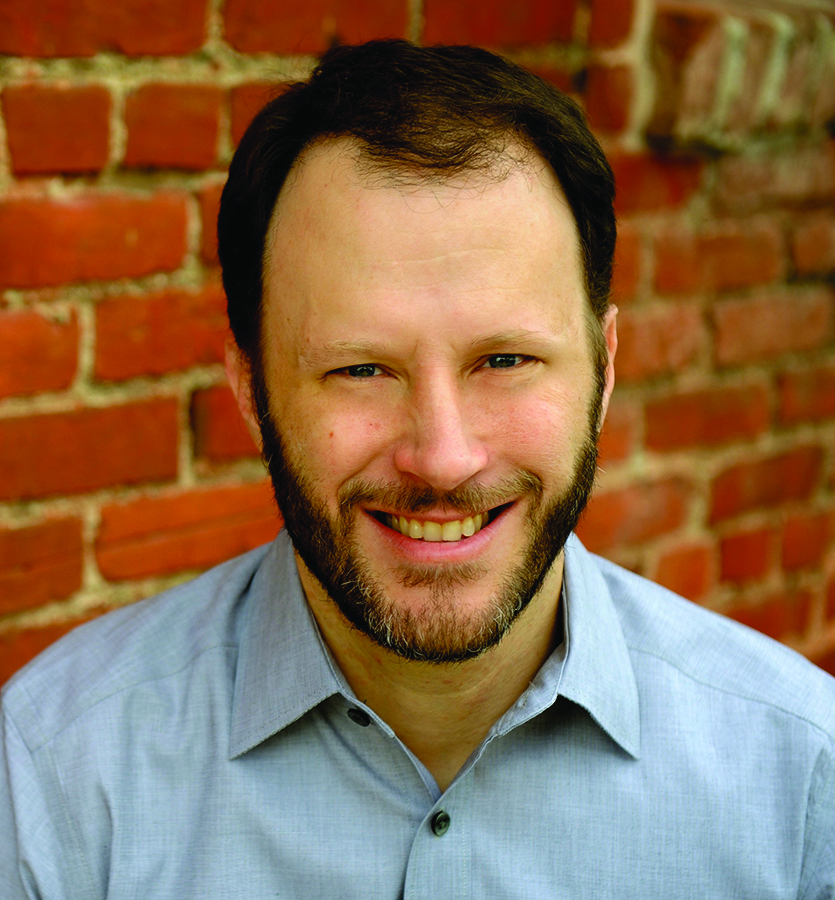
When he applied to Antioch, he was invited to a mandatory group interview. “I mistakenly thought this meant I would be interviewed by a group of faculty members all at the same time, and so got a little nervous,” he says. But that was not at all the case. “When I showed up I realized it was one professor interviewing a group of potential students all at once.” Not only was he just one person in a group, the group was made up almost entirely of other people contemplating a transition from careers in entertainment to careers in psychology.
In that one group, explains Dybner, “we had me—a TV writer—and three others, who turned out to be an actress, a TV development executive, and a TV producer. All of us, now transitioning to a second career.” When he had first applied to Antioch, he thought he was charting a new path. As he explains, “I had thought I was the only one making the leap from entertainment, but I quickly realized how popular a move it is.”
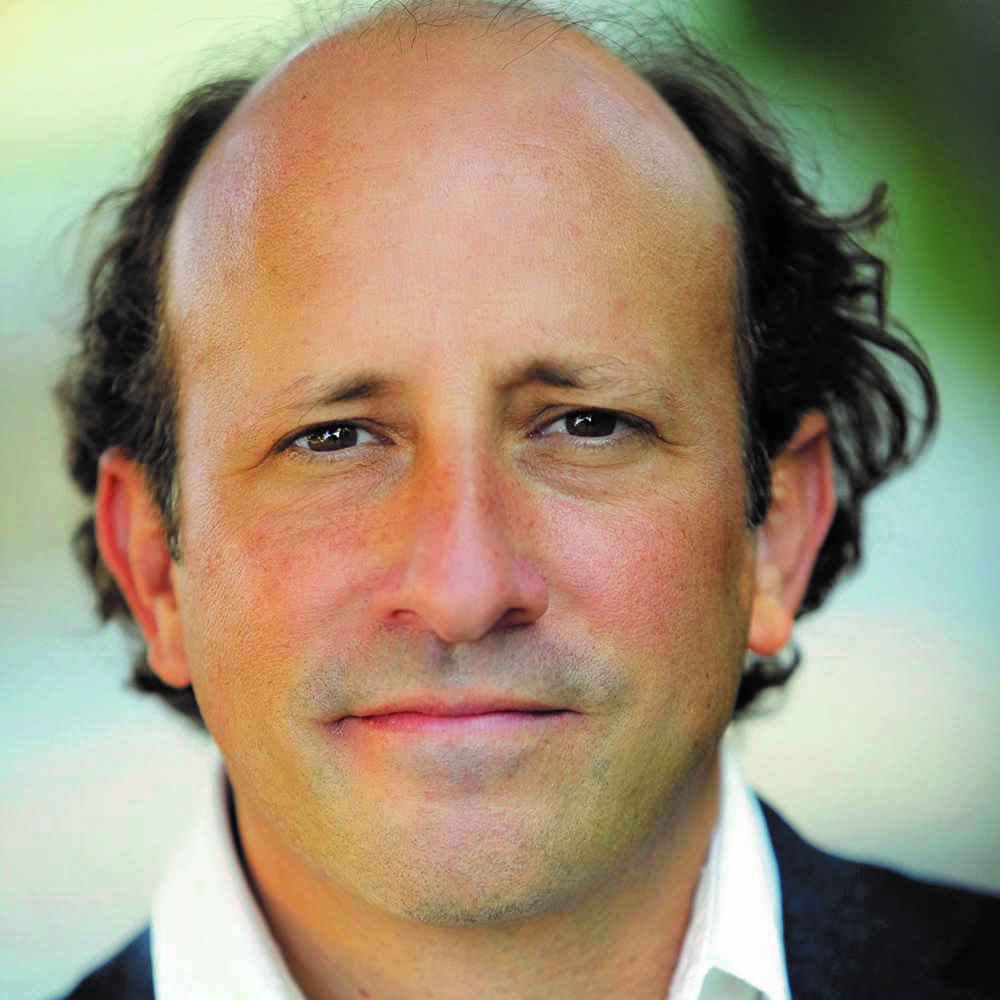
For Stark, making the career change meant pursuing a long-standing interest. He remembers being fascinated by psychology from an early age. And in some ways, he thinks that there are parallels between his two careers as a writer and a therapist. “As a writer you are creating your own world. It’s self expression,” he says. “Though you are inhabiting a character and imagining their motivations… the point is to give your personal take, to create something.” This emphasis on how the mind works is common between both therapy and writing, but writing is much more assertive, says Stark. “Therapy is very much about being passive in the moment, listening to others’ stories and motivations, not projecting…You need to keep your own issues and concerns out of it. It’s a very different role—guide, as opposed to creator.”
Finding Fulfillment and Joy in Helping Others
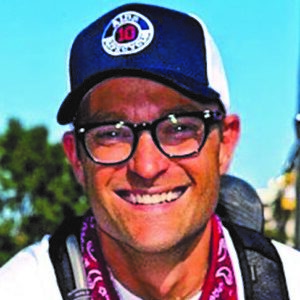
Back in Vermont, Lazzari feels that the most rewarding part of his new job is witnessing major positive change in his clients’ lives.
“I work with really hard cases,” he says. “Many of these young people have been through multiple treatment facilities and are considered treatment-resistant for one reason or another.” While this could be frustrating, Lazzari feels energized by the possibility of a breakthrough. He explains, “I’ve been working with a young man recently. So tough. He barely looked me in the eyes for weeks. Long story short, we had a breakthrough recently. Yesterday he spontaneously reached out for a hug.”
In some ways, trying to understand and work through negative emotions is a personal project for Lazzari. His doctoral dissertation, “Separating Rope Strands: An Unraveling of Shame in Gay Men,” was a challenge for him to research and write (Lazzari did not attend any college until he was thirty, enrolling at UCLA for his undergraduate degree). Lazzari, who is gay, used his thesis to explore and make a scholarly case for “the significance of understanding the origin and lifecycle of shame,” and shame’s relationship to emerging sexuality. This more scholarly work ultimately feeds back into his therapy sessions with clients, making him better able to help his clients.
Meanwhile, for Dybner part of the pleasure of this second career and his experience at Antioch has been expanding his awareness around inclusivity and other perspectives outside his own. “The diverse student body, readings, and class discussions helped make me more aware of my own blindspots as a cis-gendered straight Latinx Jewish guy,” he says.
Stark—who in addition to his work on That ’70s Show wrote the screenplay for the movie, Dude, Where’s my Car?—is for his part currently in the middle of writing a self-help/psychology book on the issues he focuses on in his practice: men’s issues, divorce, midlife, and the challenge of navigating high-pressure careers. While describing this book to me, he brings up how in his previous career he used to teach a class on sitcom pilot writing. What was interesting to Stark was the way that the characters that his students came up with seemed to in some way mirror their own psyches, experiences, or personalities. There’s a connection there, between the stories we tell and the issues we might be facing.
Ultimately, in both his new book and his therapeutic practice, he sees deep connections with his previous career. “Writing is about inhabiting characters, understanding motivations,” he explains. “My transition into psych made me aware of how in comedy you build tension and then undercut it with humor to defuse the tension. Conversely, in therapy you sit with tension. It’s okay if it feels awkward. Allowing tension to be is an important part of the therapeutic process.”
For Williams, the former events coordinator, the experience of sitting with other people has also brought her into greater self-awareness. Looking back on her training at Antioch, she’s grateful for the program’s focus on self-healing.
“The thing I didn’t realize until later, after I’d been in conversation with many therapists who’d gone through other programs,” she tells me, “is how great it is that Antioch teaches therapy through focusing on self. I had to get intimate with myself in order to be prepared to sit with other people.”
Finding New Paths Towards Healing and Growth
Williams is excited about the work that she’s doing today. Beyond offering one-on-one talk therapy, she has developed a social wellness program that aims to heal at the intersection of collectivism culture—an essential element of African-American culture—and mental health. This largely consists of bringing Black women together for healing gatherings that embody three virtues: gathering & community, play & fun, and sharing mental health tools and teachings. In these events, attendees might participate in drum circles or learn kickboxing together while also processing anger over political events or reframing what self-care really means. In some ways, she’s producing and promoting events again—though this time it’s not concerts but gatherings of Black women with the purpose of healing and sharing knowledge.
Murray, too, has found echoes of her former work in her new career. The skills she built as a reality TV producer come in handy especially during crisis situations. Her endeavors today include not just private practice but also coordinating therapists for public schools, working on- and off-screen as a therapist for TV, and counseling children in the emergency rooms of hospitals. Many of the kids she encounters in the ER are resistant to treatment and fear abandonment.
“Some of these kids say thing to me like, ‘You’re only doing this because you get paid, because it’s your job.’” Murray doesn’t retort that, in order to be there with them in that moment, she gave up a lucrative career, even turning down, right as she started grad school, what would earlier have been her dream job as a producer on The Bachelor. Instead, she loves to look back at those kids and say, simply: “Yes. I chose this.”
In this, she’s united with each of these mental health professionals who made a change to pursue a career in mental health treatment. Though they are all at different stages in their careers, whether completing licensing hours or with many years of counseling under their belts, these five therapists—and all of Antioch’s psychology alumni—are bringing to their practices the energy of a path chosen because it is personally meaningful to them to be of service to others.
To listen to a podcast interview with two Antioch art therapy professors, visit
news.antioch.edu/art-therapy
(Thank you to Grant Elliott for the original idea for this article.)



